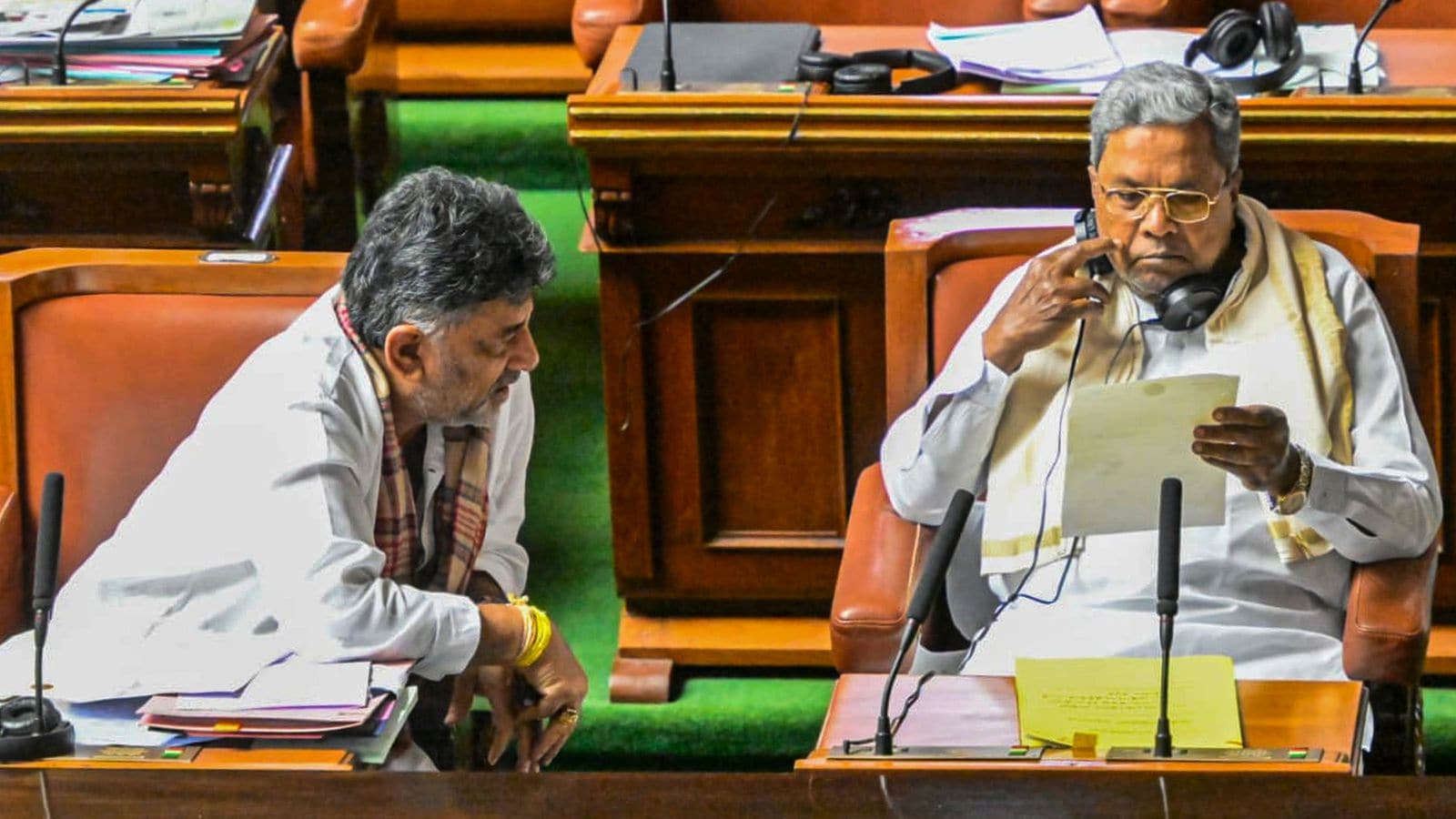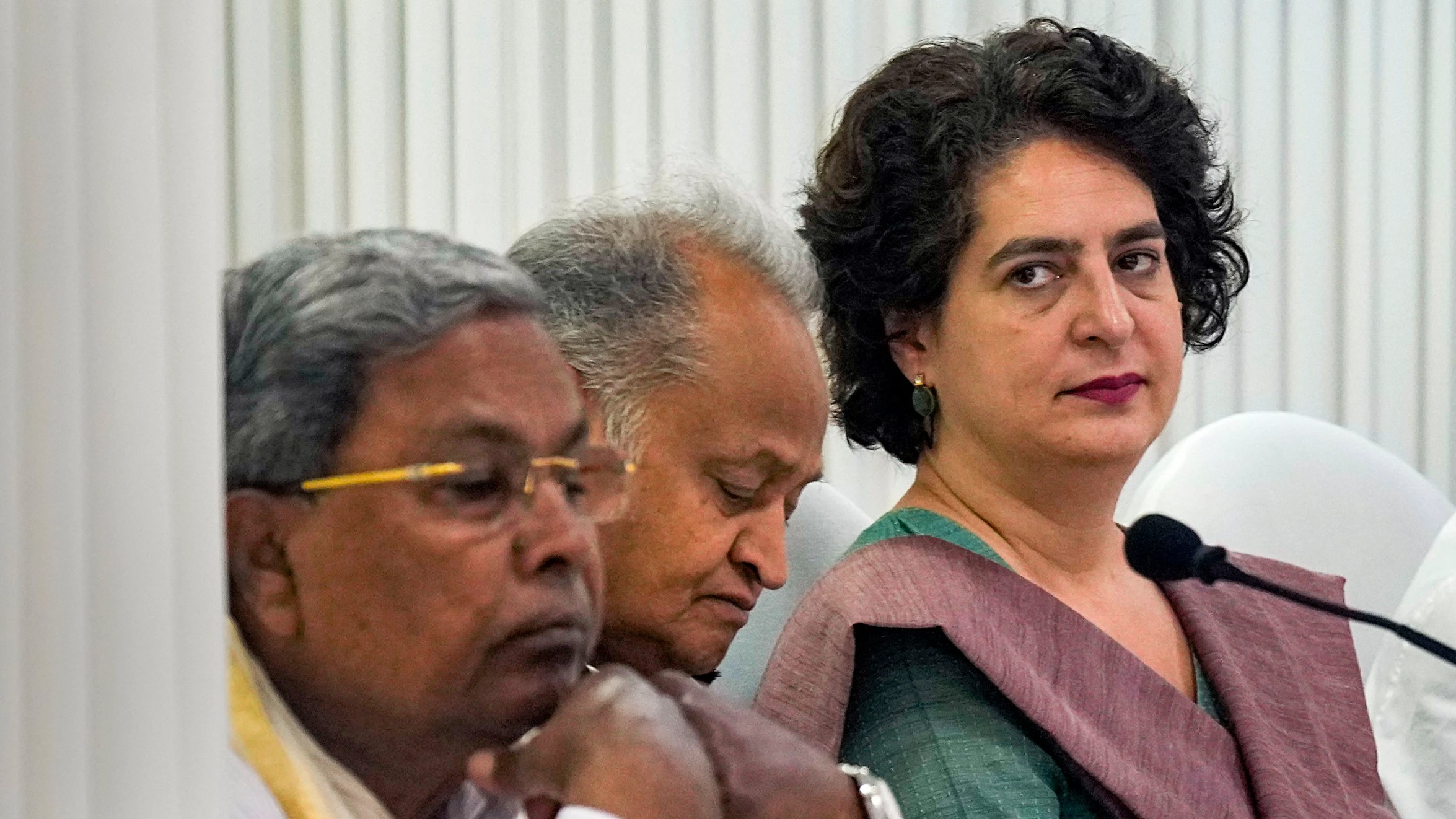A political storm has erupted in Karnataka after the state government announced a ₹10-crore financial aid package for victims of the devastating landslides in Wayanad, Kerala. While the move was positioned as a gesture of humanitarian solidarity, the opposition Bharatiya Janata Party (BJP) has strongly objected, arguing that taxpayer money collected from Kannadigas should be prioritized for the state’s own pressing needs. BJP leaders expressed sympathy for Wayanad residents affected by the disaster but insisted that Karnataka’s farmers, flood victims, and unemployed youth should not be overlooked in the process. This has ignited a heated debate across the state.
The controversy centers on whether the state government has the moral and political right to allocate such a large sum outside its borders when many districts in Karnataka are grappling with drought, flooding, and infrastructure challenges. Critics allege that the Congress-led government rushed to extend the aid in a bid to strengthen political ties, particularly since Wayanad is represented by Congress leader Rahul Gandhi in the Lok Sabha. This allegation has added a sharp political undertone to what initially appeared as a humanitarian gesture. Meanwhile, Congress leaders have defended the move, describing it as an act of compassion that reflects Karnataka’s tradition of extending a helping hand to neighbors in distress.
Public opinion is sharply divided on the issue. While some citizens have lauded the state for showing solidarity during a crisis, others feel the aid is misplaced at a time when Karnataka itself faces significant challenges. Social media has been flooded with contrasting views, with hashtags supporting and opposing the government trending simultaneously. Farmers and activists from drought-hit regions of North Karnataka, in particular, have voiced frustration, questioning why their pleas for relief remain underfunded while aid is being generously extended elsewhere. This conflict has highlighted the delicate balance between regional responsibility and humanitarian outreach.
The dispute has also reignited the conversation around fiscal priorities in Karnataka, especially at a time when the state is facing multiple financial pressures. Economists note that while the treasury may appear stable, there are rising demands for increased spending on infrastructure, agriculture, education, and healthcare within Karnataka itself. Opposition leaders argue that every rupee should be directed toward improving the lives of Kannadigas before extending aid to other states. This viewpoint resonates with citizens in flood-prone and drought-affected districts, where relief efforts are often delayed due to budgetary constraints. The ₹10-crore decision, therefore, has become a lightning rod for discontent.
At the same time, supporters of the government’s move highlight that humanitarian crises require responses that transcend state boundaries. They argue that when Karnataka faces disasters, other states and the central government also extend financial and logistical support. For them, the ₹10-crore aid package symbolizes solidarity in times of need and demonstrates Karnataka’s readiness to act responsibly in a larger national context. To them, compassion should not be limited by geography, and denying assistance would undermine India’s collective spirit of federal cooperation. This moral argument has gained traction among liberal voices and civil society groups.
Farmers’ organizations in Karnataka, however, have been particularly vocal in opposing the aid decision. They point to years of unfulfilled promises and unpaid compensation following repeated crop losses caused by droughts and floods. For these groups, the government’s willingness to quickly announce a ₹10-crore package for another state underscores what they perceive as neglect of Karnataka’s agricultural sector. Many farmers staged protests in recent days, demanding that the government redirect funds to address their grievances first. Their stance has added weight to the BJP’s criticism of misplaced priorities.
Political observers believe that the controversy reflects not just financial concerns but also electoral strategies. With upcoming local body elections and eventual state polls, parties are keen to shape narratives that resonate with voters. The BJP’s messaging of “money belongs to Kannadigas” is aimed at reinforcing regional pride and creating an impression that the Congress government is more interested in appeasing leaders outside the state. Meanwhile, the Congress hopes to project itself as compassionate and statesmanlike, showing maturity in dealing with humanitarian disasters. Both parties see the issue as an opportunity to consolidate their bases.

The Wayanad aid controversy has also drawn in voices from Kerala, where leaders welcomed Karnataka’s gesture and expressed gratitude. Officials emphasized that the landslide disaster had caused immense destruction, displacing families, damaging infrastructure, and leaving survivors in dire need of assistance. They argued that interstate aid strengthens bonds between neighbors and should be celebrated rather than criticized. This has created a contrasting narrative, where the same ₹10-crore decision is being viewed as either an act of generosity or a political blunder depending on which side of the border one stands.
Civic groups and intellectuals within Karnataka have urged the public to adopt a broader perspective, arguing that disasters demand collective responsibility. They stress that empathy should not be confined by administrative boundaries and that extending assistance strengthens India’s social fabric. Still, they acknowledge that the government must also ensure that Karnataka’s own vulnerable populations are adequately supported. Balancing compassion for others with responsibility to one’s own citizens, they argue, is the hallmark of good governance. The ongoing controversy highlights just how difficult it can be to achieve this equilibrium in a politically charged environment.
BJP’s Criticism Sparks Heated Political Clash
BJP leaders wasted no time in framing the issue as one of loyalty to Kannadigas, insisting that the state government’s foremost responsibility is to address local hardships. Senior leaders accused the Congress government of ignoring the plight of flood-hit villages in Karnataka, where farmers continue to wait for compensation and rehabilitation. They claimed that by diverting funds to Wayanad, the state has insulted the struggles of its own citizens. This has resonated with certain voter groups, particularly in rural areas, where expectations of state support remain high amid repeated natural calamities.
In response, Congress leaders have defended their decision, stating that Karnataka is financially stable enough to assist both its own people and neighbors in dire need. They argued that extending aid during disasters is part of India’s cooperative federalism and reflects a spirit of unity that transcends state boundaries. They also accused the BJP of politicizing a humanitarian act for electoral gains. The Congress emphasized that support for Wayanad does not mean Karnataka’s own citizens will be neglected, pointing to ongoing relief measures within the state. The exchange has set the stage for a bitter political showdown.

Debate Reflects Broader Questions of Governance
The controversy surrounding Karnataka’s ₹10-crore aid has exposed deeper questions about governance, compassion, and accountability. Should state governments prioritize their own citizens exclusively, or should they extend assistance to others in times of extraordinary crisis? While the Congress sees its aid package as a moral obligation and a chance to showcase Karnataka’s generosity, the BJP frames it as a betrayal of local taxpayers. With emotions running high and politics in full swing, the debate has become symbolic of the larger tension between humanitarian ideals and political pragmatism in Indian democracy.
For ordinary Kannadigas, the debate is less about politics and more about lived realities. In rural districts, many citizens feel left behind by development, struggling with water scarcity, poor infrastructure, and inadequate government relief during natural calamities. To them, the idea that their state can spare ₹10 crore for another region while their problems remain unresolved feels unfair. This sense of neglect fuels resentment, particularly among voters who believe that their concerns are consistently overshadowed by larger political calculations. The aid controversy has therefore become a channel for expressing deeper frustrations about governance.
The controversy has also opened discussions about transparency and accountability in government spending. Citizens are questioning how aid packages are determined, whether proper procedures are followed, and whether such decisions are debated in legislative forums. Opposition parties argue that major financial commitments should be subjected to broader consultation rather than being announced unilaterally. They have demanded detailed disclosures about Karnataka’s finances and assurances that similar levels of support will be extended to its own disaster-hit districts. The incident has highlighted the need for more open and participatory decision-making in the state.
Analysts note that the issue could shape voter perceptions beyond the immediate controversy. In Karnataka’s political landscape, regional pride and identity play a crucial role, often influencing electoral outcomes. If the BJP successfully positions the Congress government as prioritizing outsiders over Kannadigas, it could reap political dividends. Conversely, if Congress manages to portray its aid decision as a symbol of compassionate leadership, it could strengthen its appeal among urban and progressive voters. How each party communicates its stance in the coming weeks will determine whether the ₹10-crore aid becomes an asset or liability politically.

Ultimately, the debate surrounding Karnataka’s aid to Wayanad underscores the constant tension between compassion and pragmatism in governance. While the state government’s gesture reflects a commendable sense of solidarity, the backlash illustrates how deeply citizens feel about their tax money and their right to benefit from it first. As political parties continue to spar over the issue, the controversy serves as a reminder that policymaking is as much about perception as it is about intention. The ₹10-crore package may be small in financial terms, but symbolically, it has triggered one of the most significant political debates in recent months.
Follow: Karnataka Government
Also read: Home | Channel 6 Network – Latest News, Breaking Updates: Politics, Business, Tech & More

